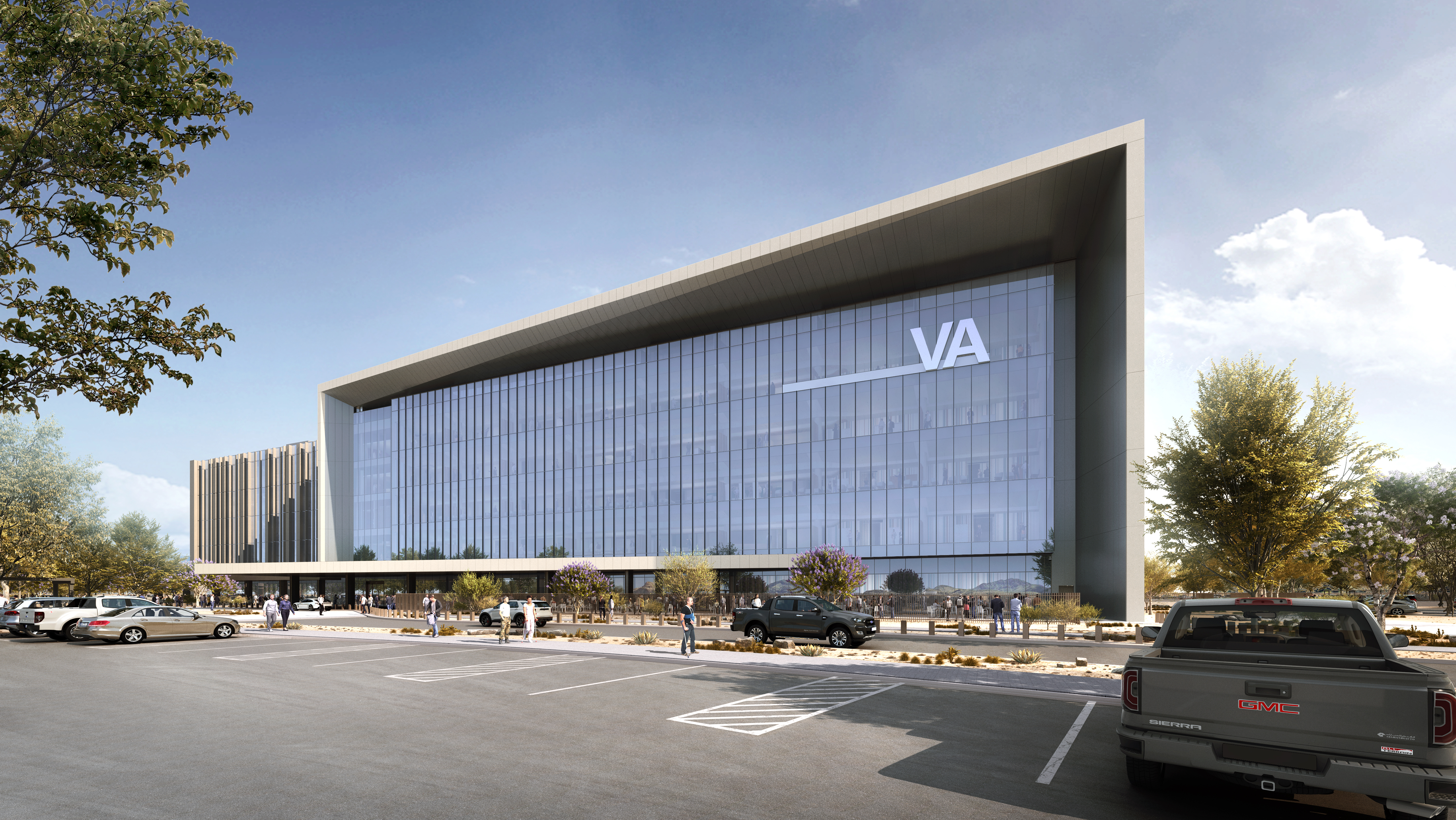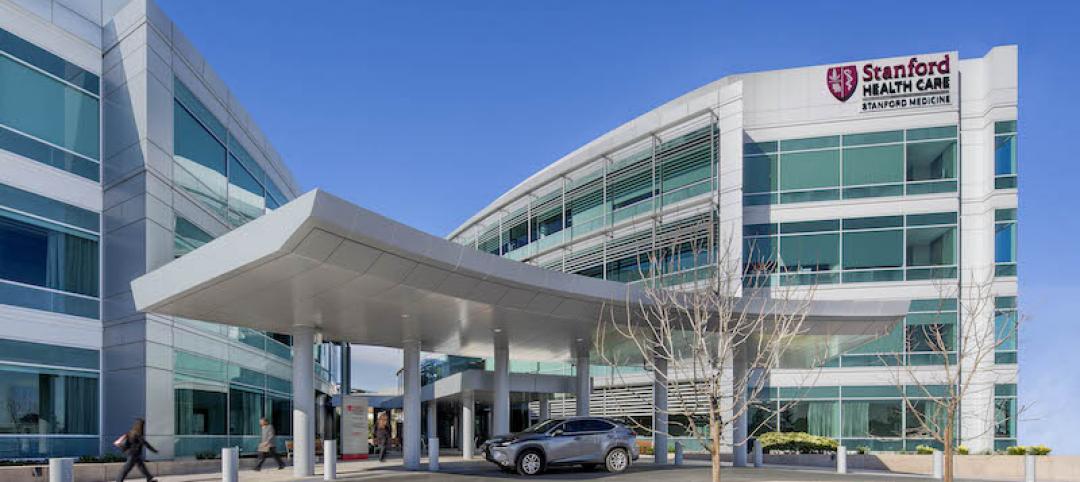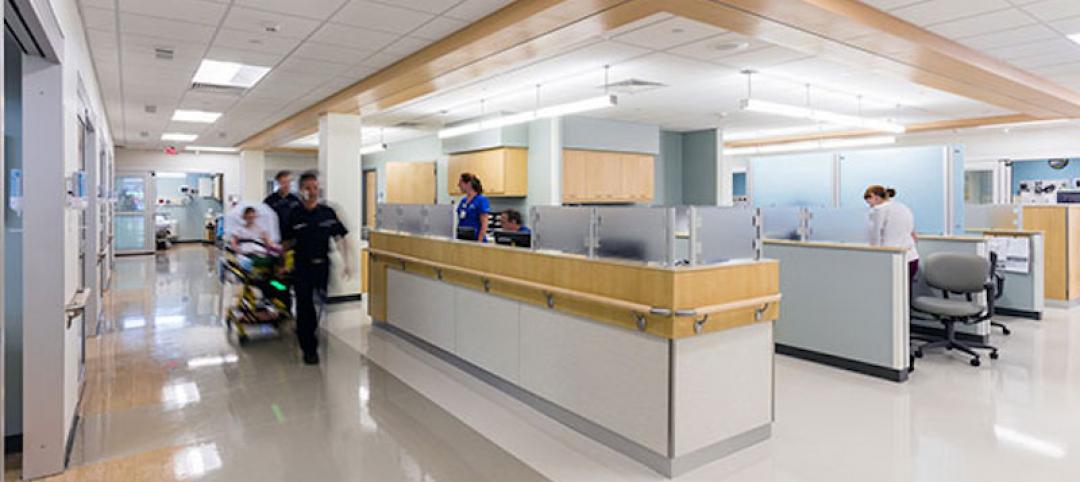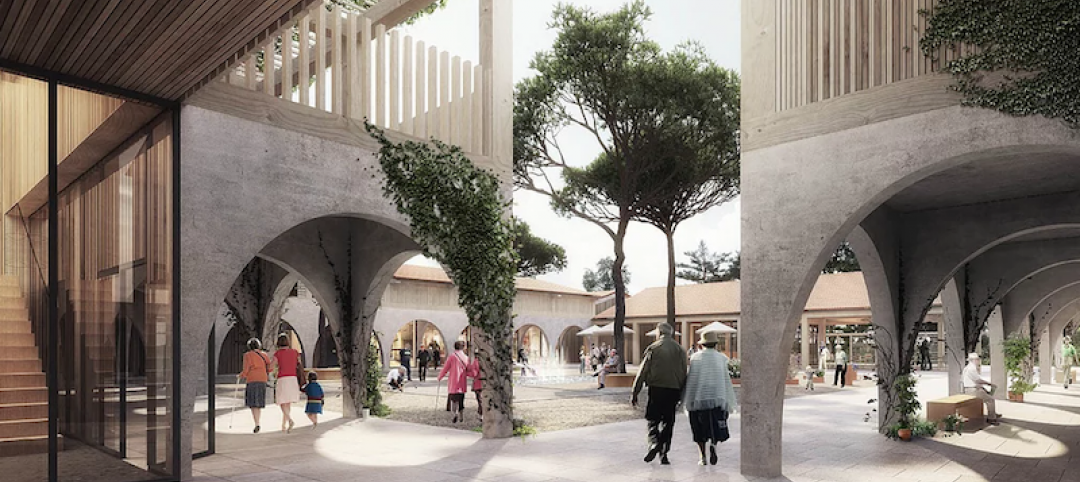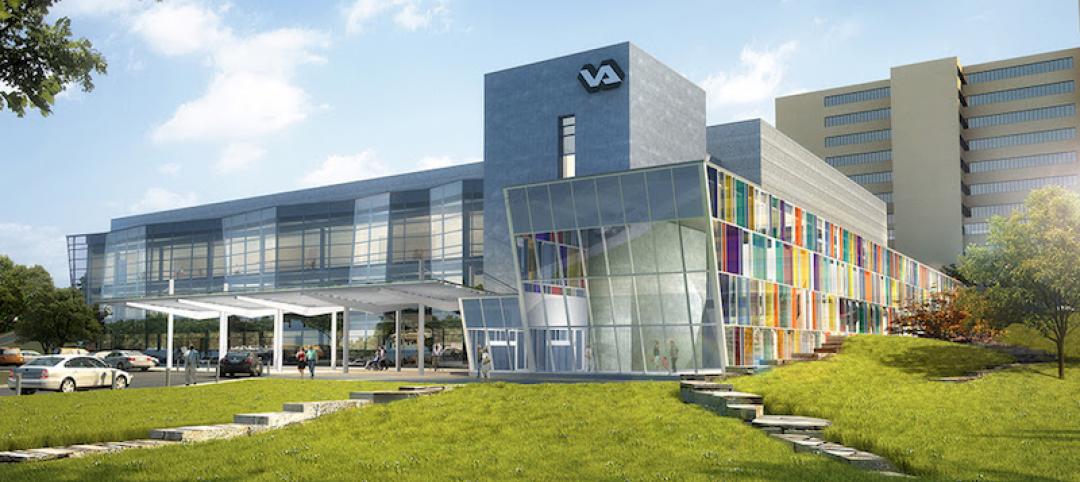A new 492,000-sf Veterans Administration ambulatory care facility on the William Beaumont Army Medical Center campus near El Paso, Texas will include 47 medical departments and provide brain and spinal cord injury treatment services. A design-build team of Clark Construction, SmithGroup, and HKS is spearheading the project that recently broke ground with anticipated completion in 2028.
The project will also include a new central utility plant and significant improvements to utilities, stormwater management, and parking facilities for the Fort Bliss campus. Public outdoor amenities bookend the entry canopy. To the northeast, an 18,000 sf healing garden, partially shaded by the building’s canopy, offers a tranquil space for respite. Toward the northwest, 6,500 sf of outdoor cafe seating connects to the interior canteen.
A 5,000-sf shaded staff plaza on the facility's south side connects the main staff entry to dedicated staff parking. Inside, a dynamic two-story lobby welcomes patients and their families with retail spaces and patient pharmacy flanking either side of the lobby. Radiology and pathology have dedicated spaces on either end of the first floor.
Interior design is inspired by the passage of the nearby Rio Grande River through the El Paso region. Soft, organic forms and curves at key points in the patient’s journey represent the fluidity of water, embodying the idea of renewal and regeneration on the path to good health. A rich, warm material palette inspired by the colors and textures of the desert and river trails grounds the interior design in the local community.
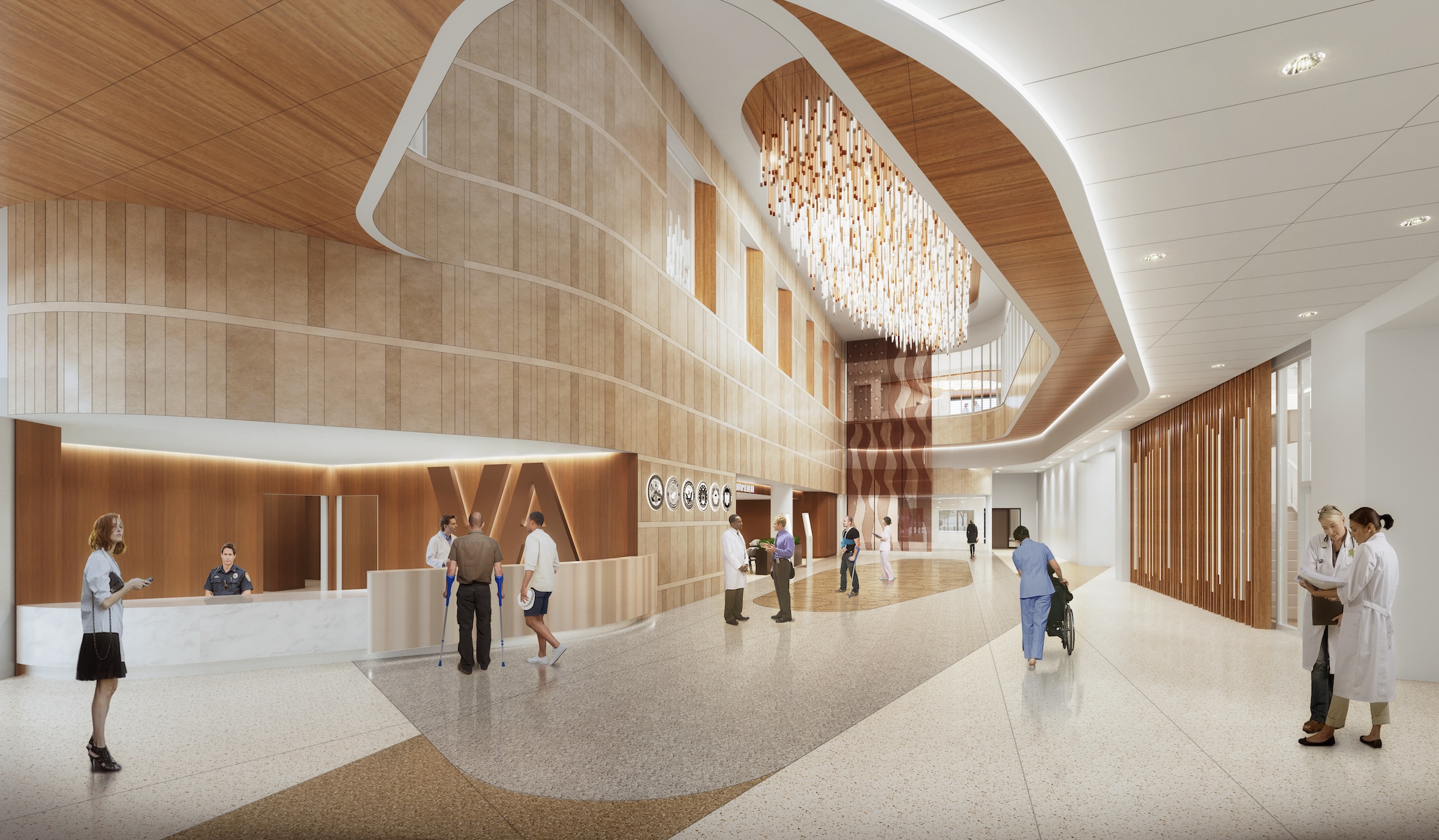
Indoor public spaces are oriented along the building’s northern façade to offer views of the nearby Franklin Mountains through an expansive glass curtain wall. Reception and waiting areas on each of the four clinical floors (levels 2-5) are also aligned along this northern façade to enjoy daylighting and views of the natural landscape, with staff workspaces and service spaces programmed behind clinical spaces along the southern spine of the building.
Audiology, prosthetics, and rehabilitation for traumatic brain and spinal cord injuries have dedicated space on level two, which also features specialty education rooms and administration spaces. The VA’s signature patient-aligned care team (PACT) clinics are on the third floor, with a specialized women’s clinic and spaces for mental health and substance abuse programs.
Level four features a dental suite, eye clinic, and surgical care to complement the ambulatory surgery unit and specialty ambulatory care (neurology, cardiovascular) on the fifth floor above. The sixth-floor penthouse features a north-facing outdoor staff terrace, administration space, and mechanical systems. The below-grade basement level of the health center contains back-of-house functions, including loading, laundry, engineering, and pharmacy.
The new health center is oriented to optimize environmental conservation and protection (solar, thermal, comfort, and wind), contributing to a goal of 30% energy reduction over prevailing building codes. Additionally, the building’s orientation forms a new campus entry and helps to minimize new parking areas on site, leaving a more natural landscape intact. Proposed arrays of photovoltaic panels above new parking areas will help to shade vehicles and generate energy on-site. The building is designed to exceed LEED Silver certification.
Owner and/or developer: U.S. Department of Veterans Affairs (VA)
Design architect: SmithGroup (interior); HKS (exterior)
Architect of record: SmithGroup + HKS Joint Venture
MEP engineer: Capital Engineering Consultants, Inc. (mechanical); Mazzetti (electrical)
Structural engineer: Cagley and Associates
General contractor/construction manager: Clark Construction Group
Related Stories
BIM and Information Technology | Jul 9, 2018
Healthcare and the reality of artificial intelligence
Regardless of improved accuracy gains, caregivers may struggle with the idea of a computer logic qualifying decisions that have for decades relied heavily on instinct and medical intuition.
Healthcare Facilities | Jun 28, 2018
New Stanford Healthcare outpatient building opens in Redwood City
The facility recently celebrated its grand opening with a ribbon-cutting ceremony.
Healthcare Facilities | Jun 26, 2018
The future of the ambulatory surgery centers and acuity levels
Offering the one-two punch of cost savings and convenience, ASCs are increasingly becoming the venue of choice for both physicians and patients.
Healthcare Facilities | Jun 26, 2018
Mesquite, Texas to receive 60-acre ‘wellness village’
Construction is anticipated to begin on the initial phase in mid-2019.
University Buildings | Jun 25, 2018
Virginia Commonwealth has at least three major expansion projects under construction
New buildings for outpatient care, engineering, and rehabilitation of serious injuries and debilities are scheduled to be completed in 2020.
Healthcare Facilities | Jun 6, 2018
French 'Alzheimer’s Village' designed to resemble a medieval bastide
The new facility will provide research on a new way of treating Alzheimer’s patients.
Healthcare Facilities | May 29, 2018
Will telemedicine change the face of healthcare architecture?
Telemedicine is a broad term that covers many aspects and mediums of care, but primarily it refers to the use of video monitors to allow a virtual face to face consultation to take place.
| May 24, 2018
Accelerate Live! talk: Security and the built environment: Insights from an embassy designer
In this 15-minute talk at BD+C’s Accelerate Live! conference (May 10, 2018, Chicago), embassy designer Tom Jacobs explores ways that provide the needed protection while keeping intact the representational and inspirational qualities of a design.
Healthcare Facilities | May 24, 2018
The design of the new Omaha VA Ambulatory Care Center incorporates veteran symbolism throughout the building
Leo A Daly designed the facility.
Building Team Awards | May 17, 2018
Patient priorities: Cleveland Clinic Taussig Cancer Center
Gold Award: Cleveland Clinic’s new cancer center is a transparent, collaborative hub for improved patient experiences and enhanced communication with caregivers.


